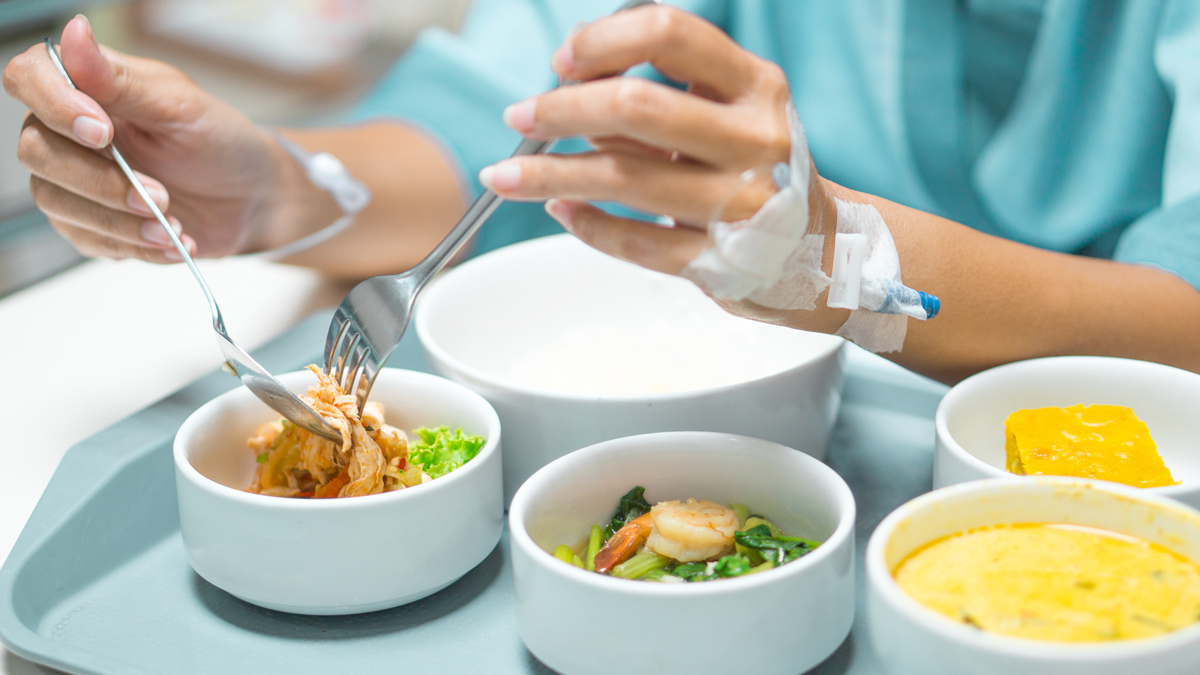Introduction: Undergoing chemotherapy can be a physically and emotionally challenging experience for cancer patients. Maintaining proper nutrition during this time is crucial to support the body’s immune system, promote healing, and manage treatment side effects.
Introduction:
Undergoing chemotherapy can be a physically and emotionally challenging experience for cancer patients. Maintaining proper nutrition during this time is crucial to support the body’s immune system, promote healing, and manage treatment side effects. While individual dietary needs may vary, incorporating specific foods into your diet can help optimize nutrition and alleviate symptoms. In this comprehensive guide, we will explore 10 foods that are particularly beneficial during chemotherapy.
1. Ginger:
Ginger has long been used to alleviate nausea and vomiting, which are common side effects of chemotherapy. Its active compounds, gingerols and shogaols, have anti-inflammatory and digestive properties that can soothe the digestive system. Ginger can be consumed in various forms, such as fresh ginger root, ginger tea, or ginger candies. Incorporating ginger into your diet may help reduce chemotherapy-induced nausea and improve overall digestion.
2. Berries:
Berries are packed with antioxidants, vitamins, and fiber, making them an excellent addition to a chemotherapy diet. Blueberries, strawberries, raspberries, and blackberries are rich in anthocyanins, which possess anti-inflammatory and immune-boosting properties. They can also help combat oxidative stress caused by chemotherapy. Include a variety of berries in smoothies, yogurt, or oatmeal to reap their nutritional benefits.
3. Cruciferous Vegetables:
Cruciferous vegetables, including broccoli, cauliflower, kale, and Brussels sprouts, are rich in vitamins, minerals, and phytochemicals. They contain compounds like sulforaphane and indole-3-carbinol, which have been studied for their potential cancer-fighting properties. Cruciferous vegetables are also high in fiber, aiding digestion and reducing the risk of constipation. Enjoy them steamed, roasted, or in soups to maximize their nutritional value.
4. Fatty Fish:
Fatty fish, such as salmon, mackerel, and sardines, are excellent sources of omega-3 fatty acids. These essential fats possess anti-inflammatory properties and may help reduce inflammation caused by chemotherapy. Additionally, fatty fish provide high-quality protein and essential nutrients like vitamin D and selenium. Aim to include fatty fish in your diet at least twice a week to support overall health and well-being.
5. Quinoa:
Quinoa is a versatile grain that is rich in protein, fiber, and essential amino acids. During chemotherapy, when appetite and energy levels may fluctuate, quinoa can provide a nutrient-dense option. Its high fiber content aids digestion and helps prevent constipation. Quinoa can be cooked and served as a side dish or added to salads and soups for a wholesome and satisfying meal.
6. Yogurt:
Yogurt is a probiotic-rich food that can support digestive health during chemotherapy. The beneficial bacteria present in yogurt help maintain a healthy gut microbiota, which plays a crucial role in immune function. Opt for plain, unsweetened yogurt to avoid added sugars. You can enhance its flavor by adding fresh fruits or a drizzle of honey. If you are lactose intolerant, consider trying dairy-free yogurt alternatives made from soy, almond, or coconut.
7. Turmeric:
Turmeric contains a compound called curcumin, known for its anti-inflammatory and antioxidant properties. This spice has been used for centuries in traditional medicine to alleviate inflammation and support overall well-being. Adding turmeric to dishes can enhance their flavor and provide potential health benefits. Consider incorporating turmeric in curries, soups, or golden milk, a warm beverage made with turmeric, milk, and spices.
8. Citrus Fruits:
Citrus fruits like oranges, lemons, and grapefruits are excellent sources of vitamin C, a potent antioxidant that supports immune function. Chemotherapy can weaken the immune system, making it crucial to consume foods rich in vitamin C. Citrus fruits also offer hydration and can help combat taste alterations often experienced during treatment. Enjoy citrus fruits as a refreshing snack or incorporate their juice into smoothies and salad dressings.
9. Green Leafy Vegetables:
Green leafy vegetables, such as spinach, kale, and Swiss chard, are nutritional powerhouses. They are rich in vitamins A, C, and K, as well as folate and fiber. These vegetables can help maintain a healthy blood count and support overall immune function. Steam or sauté green leafy vegetables as a side dish, blend them into smoothies, or use them as a base for salads to incorporate their health benefits into your diet.
10.Nuts and Seeds:
Nuts and seeds are nutrient-dense foods that provide essential fats, protein, fiber, and a wide range of vitamins and minerals. They can be a convenient and satisfying snack option during chemotherapy. Almonds, walnuts, flaxseeds, and chia seeds are particularly beneficial due to their omega-3 fatty acid content. Sprinkle them on salads, add them to smoothies, or enjoy them as a standalone snack for a nourishing boost.
Conclusion:
During chemotherapy, maintaining a well-rounded and nutritious diet is essential to support overall health and manage treatment side effects. Incorporating the 10 foods mentioned above can help optimize nutrition, alleviate symptoms, and promote healing. However, it’s important to consult with a healthcare professional or registered dietitian who can provide personalized guidance based on your specific needs and preferences. By nourishing your body with the right foods, you can enhance your well-being and aid in your recovery journey.
- What are the Best Delta 8 THC Capsules - July 24, 2023
- 10 Foods to Eat During Chemotherapy - July 18, 2023
- Behind the Brand: CBDmedic - June 26, 2023

